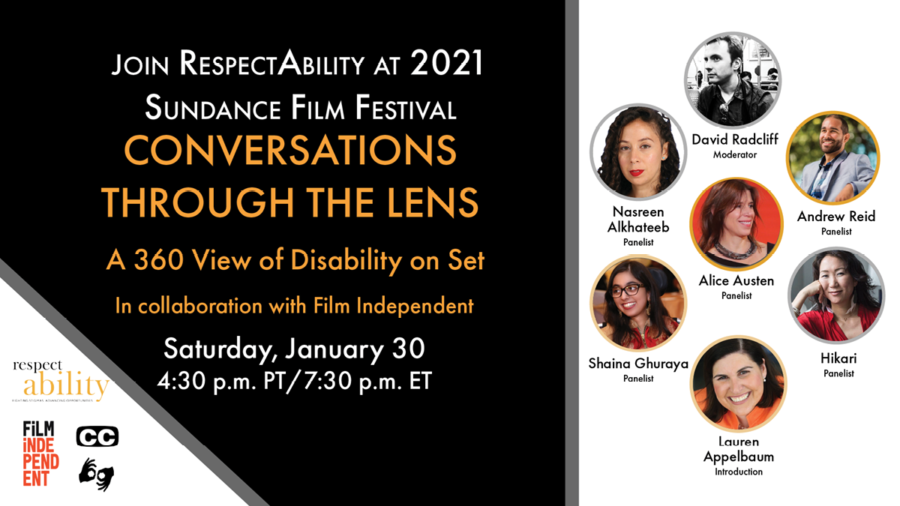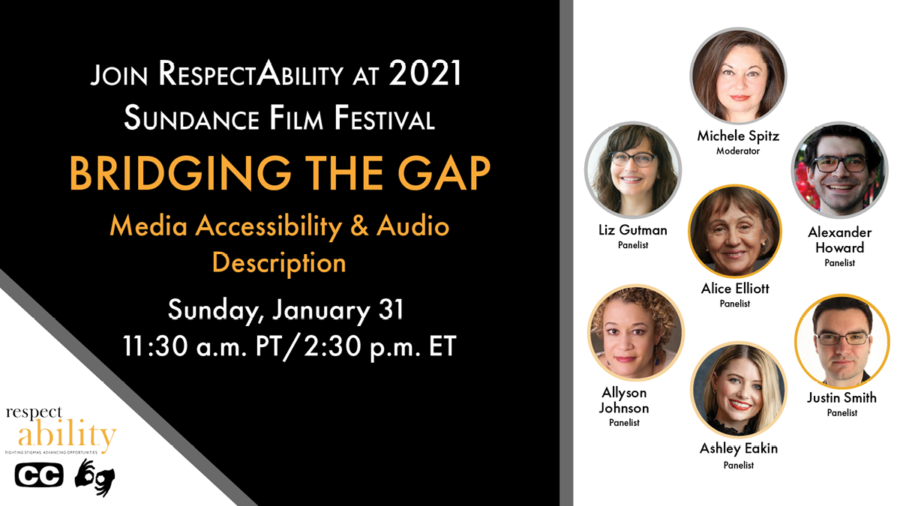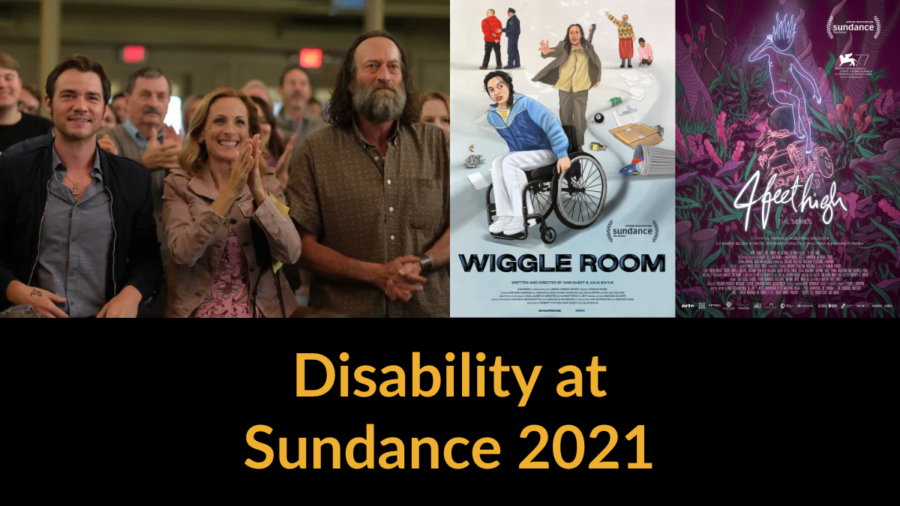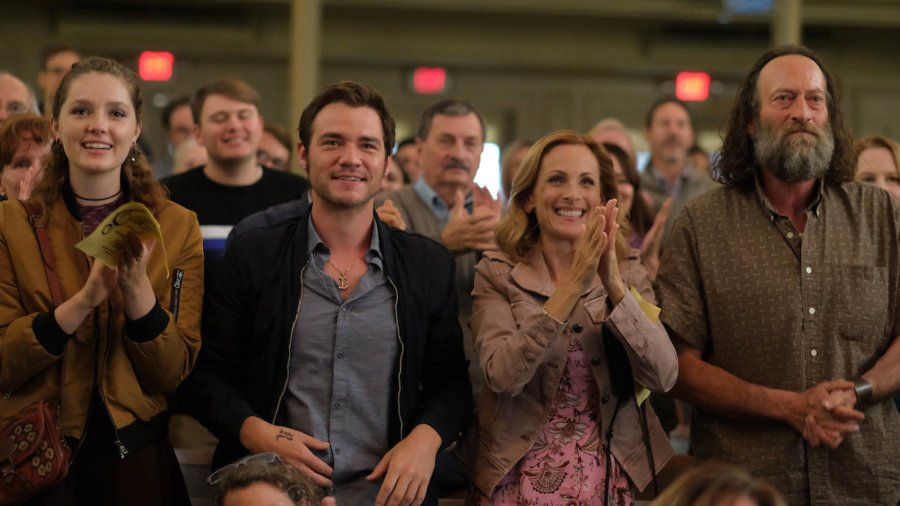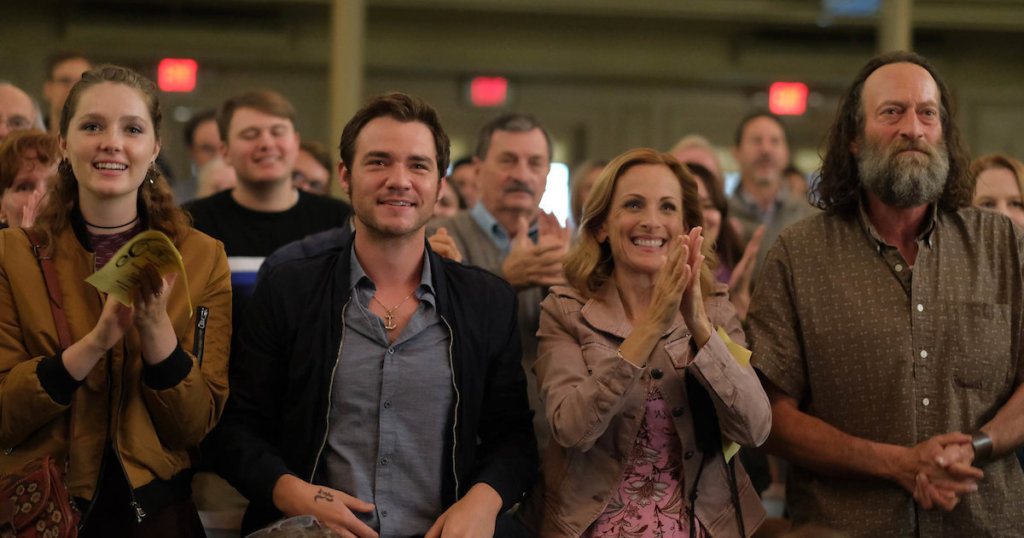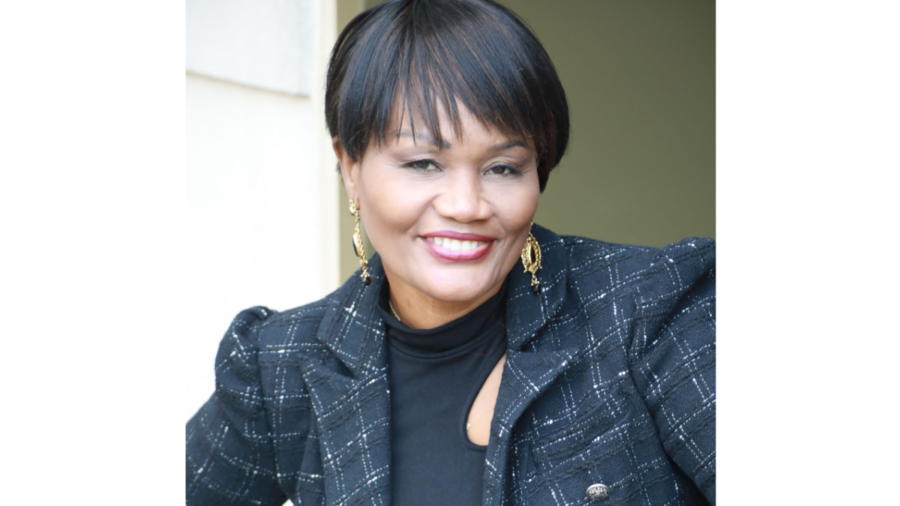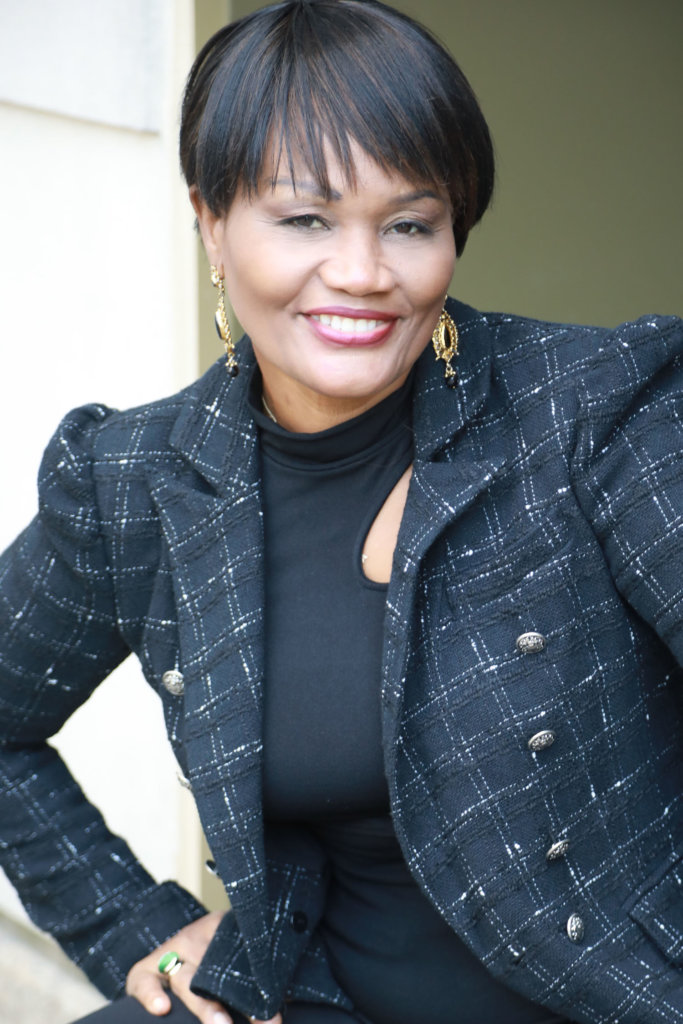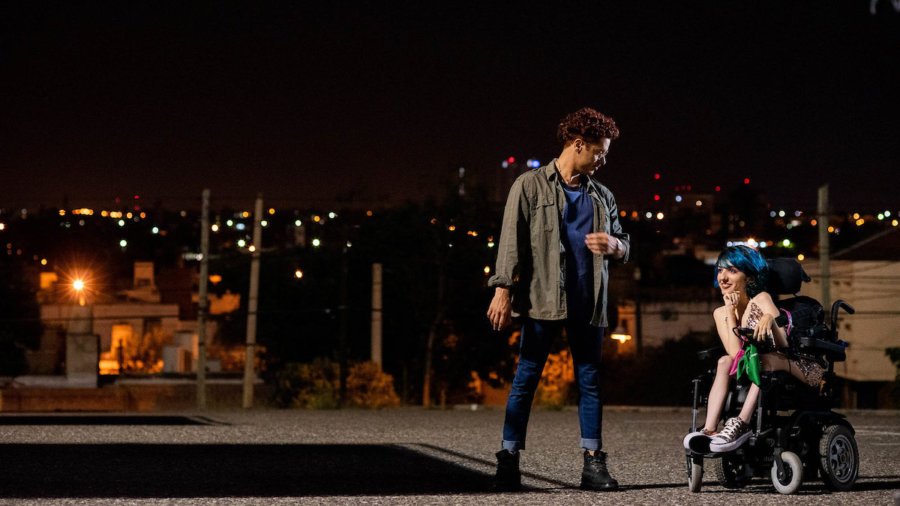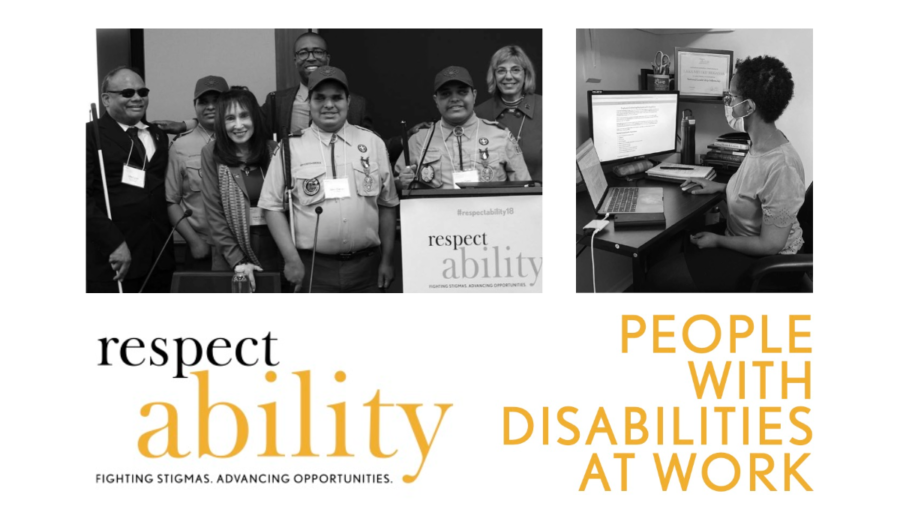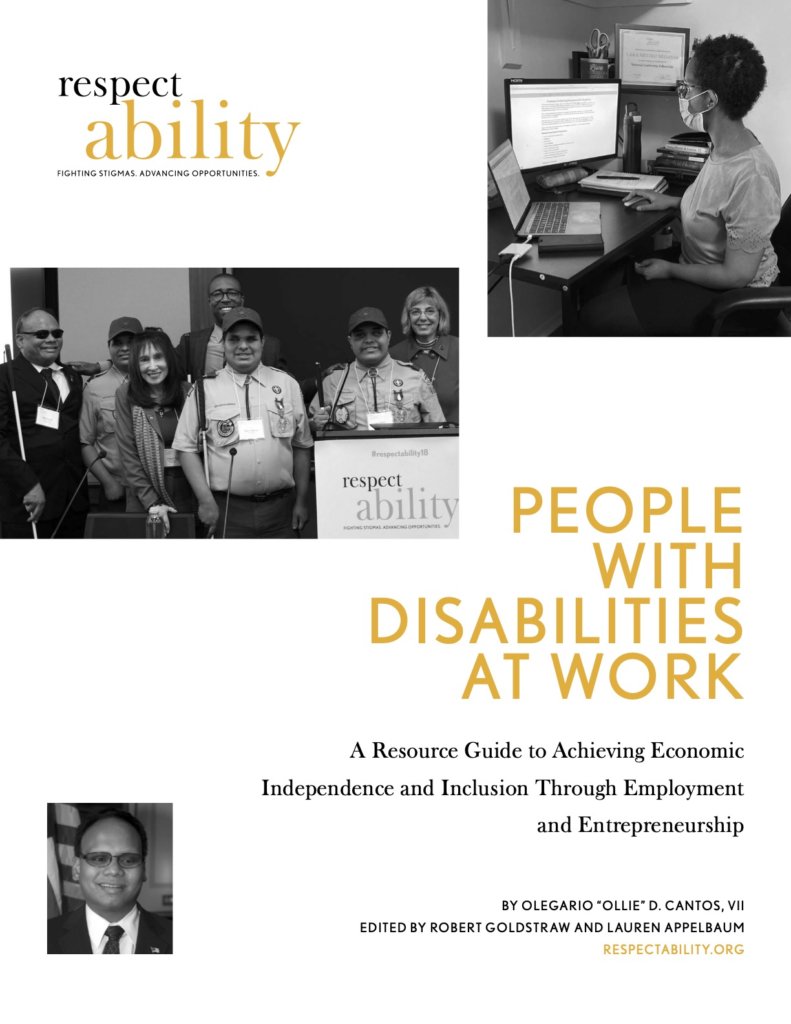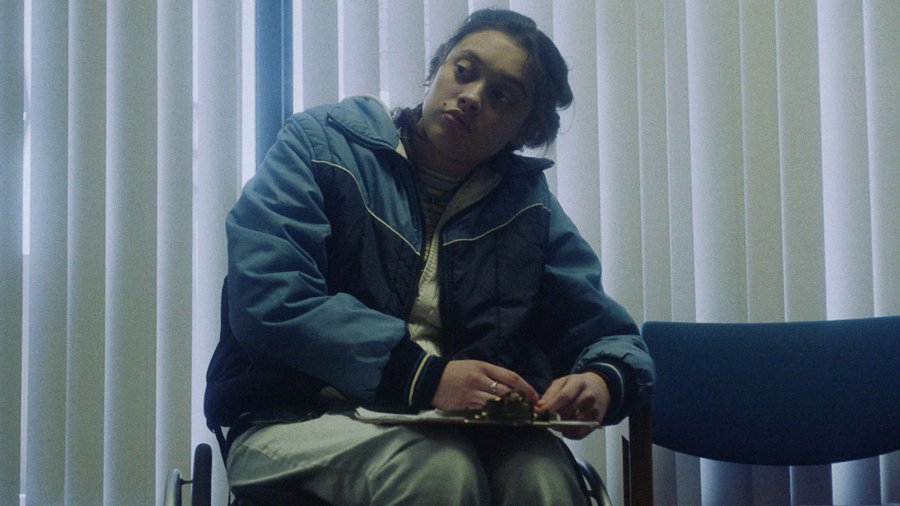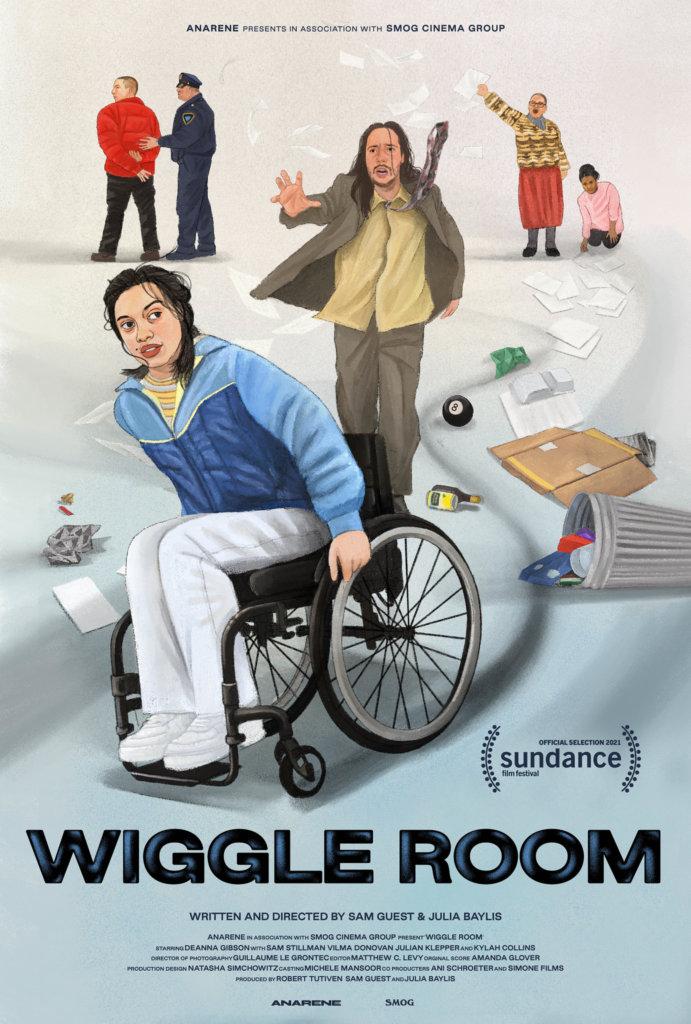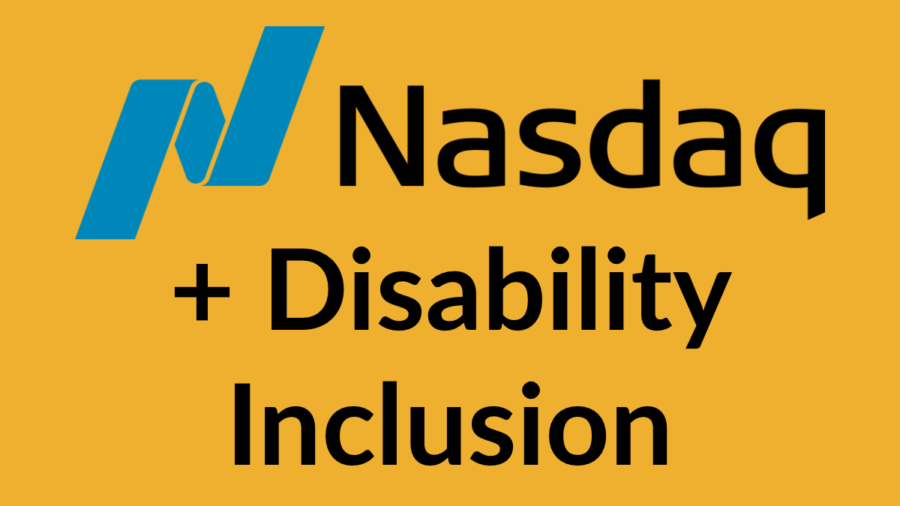Los Angeles, Feb. 9 – Anyone who has worked in Hollywood knows that tenacity and the ability to adapt are critical to success. These are qualities that everyone with a disability implicitly understands and embodies daily. The importance of these traits came through during a panel conversation moderated by David Radcliff, an alumnus of the ABC-Disney Writers Program, held during the 2021 Sundance Film Festival in partnership with RespectAbility and Film Independent. A diverse group of panelists working on both sides of the camera, some with disabilities, others without, shared their experiences working on set with a disability or with people with disabilities and described how they all came together to get the job done. [continue reading…]
News
“Bridging the Gap” – Ensuring Media Accessibility Through Audio Description
Los Angeles, Feb. 9 – During the 2021 Sundance Film Festival, I was honored to be a part of a panel called “Bridging the Gap: Media Accessibility and Audio Description.” It always has been my dream to attend or be a part of the Sundance festivities. This opportunity was perfect for me, mostly since the panel was about audio description, which is a topic I am incredibly passionate about. For those unaware, audio description is a secondary audio track recorded for media that describes the action on screen between lines of dialogue for low vision and blind consumers. [continue reading…]
Casual Inclusion of Disability in Sundance Films Help Normalize Having a Disability
Los Angeles, CA, Feb. 9 – Much of the conversation about disability during the 2021 Sundance Film Festival centers around a few films of importance – including CODA, 4 Feet High and Wiggle Room. But, it also is important to note that several other films included casual inclusion of disability, which also help to normalize having a disability in society.
For example, a montage of people getting dressed in “Life in a Day 2020” included a close up of a person pulling on clothing over an amputated leg. A high school student talks about having a learning disability in “Homeroom,” noting that she was not diagnosed until high school due to lack of school resources. “Street Gang: How We Got to Sesame Street” briefly touches on Jon Stone’s depression. Nearly 90 minutes in, viewers learn that Amy Tan in “Amy Tan: Unintended Memoir” has lyme disease and epilepsy, in addition to depression. And in “Jockey,” there is a short discussion on living on disability, especially when you have a family.
With one-in-five people having a disability in the U.S. today, the lack of representation – just 2.3 percent of characters in the 100 top-grossing films of 2019 and 8 percent in family films – means that millions of people are unable to see themselves reflected in media. While none of the films mentioned above are about disability, the casual inclusion of disability in them is important. [continue reading…]
CODA Sheds an Intimate Light on Deaf Culture and Being a CODA
Los Angeles, Feb. 9 – A week after premiering on opening night of the 2021 Sundance Film Festival, CODA, a remake of the French film La Famille Bélier, still is causing conversations among the film festival circuit. CODA’s premiere was met with high praise and an immediate bidding war. Before the festival was even halfway through, Apple had announced they had acquired the distribution rights to CODA for a whopping $25 million, breaking the festival record that was held by Palm Springs, which was purchased by Hulu and Neon Films for $22 million at the 2020 film festival.
CODA tells the story of a high school senior (Emilia Jones) named Ruby who is the only hearing member of her family, the Rossis. They live in the fishing town of Gloucester, MA. As the only Deaf family in the town, Ruby helps her family fishing business and communicates on behalf of them with the town, while reconciling her dreams of pursuing music. Rounding out the authentically-casted Deaf family is the Academy-Award winning Marlee Matlin and The Mandalorian’s Troy Kotsur as Ruby’s parents Jackie and Frank respectively, and Switched at Birth’s Daniel Durant as Ruby’s brother Leo. [continue reading…]
Black History Month Reflection: by Dr. Nelle Richardson
My name is Dr. Nelle Richardson. I am an African-American woman of Caribbean descent. I am a motivational speaker and an advocate for people with disabilities. I’m also CEO and founder of a nonprofit organization, “Will To Win Ministry,” where I empower women who have somehow lost their way. I assist them in the healing process — motivating them to get back on track and focus on well-being — their own well-being first, then moving on to helping and motivating others.
I am diagnosed with a traumatic brain injury, cognitive difficulties and neck and back injuries resulting from a couple of accidents. I was born on the island of Saint Vincent and the Grenadines in the Caribbean, and in my family, girls were marginalized and refused an education. [continue reading…]
4 Feet High Gives Women with Disabilities an On-Screen Role Model in Loving Yourself
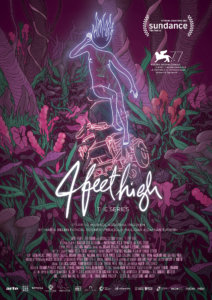 Los Angeles, CA, Feb. 4 – As the 2021 Sundance Film Festival closes its first virtual festival, I was excited to see a lot disability-themed content this year. One of my favorites was 4 Feet High, six short episodes from Sundance’s Indie Series program and four VR episodes from the New Frontier program. The series features Juani, a 17-year-old young woman who is a wheelchair user, played by Marisol Agostina Irigoyen, a real wheelchair user. [continue reading…]
Los Angeles, CA, Feb. 4 – As the 2021 Sundance Film Festival closes its first virtual festival, I was excited to see a lot disability-themed content this year. One of my favorites was 4 Feet High, six short episodes from Sundance’s Indie Series program and four VR episodes from the New Frontier program. The series features Juani, a 17-year-old young woman who is a wheelchair user, played by Marisol Agostina Irigoyen, a real wheelchair user. [continue reading…]
RespectAbility to Release New Resource Promoting Employment, Entrepreneurship Among People with Disabilities
Los Angeles, CA, Feb 3 – RespectAbility, a nonprofit organization committed to fighting stigma and advancing inclusion of people with disabilities, will host a webinar on Wednesday, February 10, 2021 at 1:30 p.m. ET / 10:30 a.m. PT to release a new resource, “People with Disabilities at Work: A Resource Guide to Achieving Economic Independence and Inclusion Through Employment and Entrepreneurship.” To register for the webinar, visit: https://www.respectability.org/2020/12/economic-self-sufficiency-webinar.
The comprehensive guide, intended for youth and adults with disabilities, their families and advocates, covers topics ranging from transitioning from school to work to the importance of mentoring and networking in securing successful employment outcomes. [continue reading…]
Short Film Forever Examines the Role of AI in Determining the Value of a Life
Los Angeles, Jan. 30 – A new short screening at the 2021 Sundance Film Festival, Forever, examines the role of artificial intelligence (AI) in determining the value of a life – including what happens when AI determines one may not live long.
In this animated short experimental film, a man named Mitchell, voiced by the writer/director Mitch McGlocklin, is denied life insurance due to “an advanced algorithm” processing his medical records, criminal background and social history, credit score and social media accounts, ultimately determining he is “too risky of a case.”
What follows is the protagonist narrating his reaction to the news. “I guess the AI thought I was going to die. When I thought of it that way, it hit me pretty hard because I have a lot of belief in AI. I see AI as not really an opinion. It seems like truth.” Ultimately, however, this character finds comfort in that he will live on forever in AI. [continue reading…]
Short Film Wiggle Room Delivers Sharp Indictment of America’s Labyrinthine Insurance System
Los Angeles, Jan. 30 – Paraphrasing Franz Kafka, philosopher Slavoj Žižek once said, “For a modern, secular non-religious man, state bureaucracy is the only remaining contact with the dimension of the Divine.” Inspired by the events of the filmmakers’ friend, the short film Wiggle Room, written and directed by Julia Baylis and Sam Guest, is a somber reminder of the constant bureaucratic hurdles plaguing individuals with disabilities, who often rely on the caprices of insurance companies to survive. Anchored by the debut of lead actress Deanna Gibson, Wiggle Room turns the necessary evils of administration into an inescapable noose made of red tape hellbent on strangling our protagonist.
Premiering at the 2021 Sundance Film Festival, Wiggle Room’s plot is deceptively simple: a teenage paraplegic (Gibson) travels to her nearest insurance office to retrieve the reimbursement for a ramp her mom had installed in their home. However, in the tradition of social realism or Ken Loach (specifically I, Daniel Blake), Baylis and Guest stress to us that immediate compensation is not a luxury afforded to the downtrodden. Over a year has passed since the erection of the ramp and it is in danger of repossession unless the insurance company finally pays up. Our protagonist embarks on the hero’s journey via accessible van in order to slay the leviathan that is bureaucracy. [continue reading…]
Disability Groups call on Nasdaq to Include People with Disability in New Diversity Push
With Nasdaq considering new rules to promote diversity in corporate board rooms, advocacy organizations call for disability inclusion.
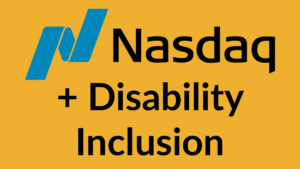 Washington, D.C., January 29 – In a week where the stock market was all over the headlines, a group of disability advocates responded to a solicitation from Nasdaq about proposed rule changes that would impact board room diversity. In their testimony about this proposal, the group, which included the National Organization on Disability, the National Disability Institute, ANCOR, Disability:IN DC Metro and RespectAbility, called for the proposed rule change to include recognition that the 1-in-5 people with disabilities want to have a better future themselves and to create a better future for others as well.
Washington, D.C., January 29 – In a week where the stock market was all over the headlines, a group of disability advocates responded to a solicitation from Nasdaq about proposed rule changes that would impact board room diversity. In their testimony about this proposal, the group, which included the National Organization on Disability, the National Disability Institute, ANCOR, Disability:IN DC Metro and RespectAbility, called for the proposed rule change to include recognition that the 1-in-5 people with disabilities want to have a better future themselves and to create a better future for others as well.
Back in December 2020, Nasdaq filed a proposed rule change at the Securities and Exchange Commission (SEC) intended to drive greater diversity and inclusion in Corporate America. The specific proposal would “require Nasdaq-listed companies…to have at least one director who self-identifies as a female… to have at least one director who self-identifies as Black or African American, Hispanic or Latinx, Asian, Native American or Alaska Native, Native Hawaiian or Pacific Islander, two or more races or ethnicities, or as LGBTQ+.” If Nasdaq-listed companies did not comply, they would have to explain to the SEC why such self-identified diversity was lacking in the makeup of the current board members. [continue reading…]


